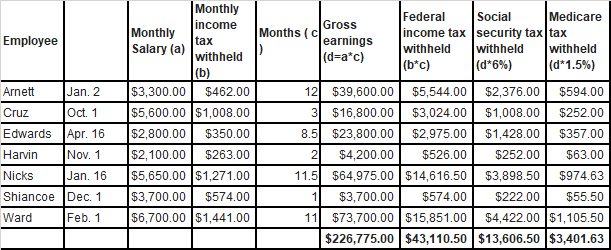HELP
advance Accounting 12th edition
Problem 8-4 (LO 2) Worksheet, subsidiary stock sale with parent purchase, intercompany merchandise.
On January 1, 2016, Mitta Corporation acquires a 60% interest (12,000 shares) in Train Company for $156,000. Train stockholders’ equity on the purchase date is as follows:
At the purchase date, Train’s book values for assets and liabilities closely approximate fair values. Any excess of cost over book value is attributed to goodwill.
On January 1, 2017, Train Company sells 5,000 shares of common stock in a public offering at $20 per share. Mitta Corporation purchases 4,000 shares.
During 2017, Mitta sells $30,000 of goods to Train at a gross profit of 25%. There are $6,000 of Mitta goods in Train’s beginning inventory and $8,000 of Mitta goods in Train’s ending inventory.
Merchandise sales by Train to Mitta are $20,000 during 2017 at a gross profit of 30%. There are $6,000 of Train goods in Mitta’s beginning inventory and $2,000 of Train goods in Mitta’s ending inventory.
Intercompany gross profit rates have been constant for many years. There are no intercompany payables/receivables.
Mitta’s investment in Train Company balance is determined as follows:
The trial balances of the two companies as of December 31, 2017, are as follows:
Required
Prepare the worksheet necessary to produce the consolidated financial statements of Mitta Corporation and its subsidiary as of December 31, 2017. Include the determination and distribution of excess and income distribution schedule.
advance Accounting 12th edition
Problem 8-4 (LO 2) Worksheet, subsidiary stock sale with parent purchase, intercompany merchandise.
On January 1, 2016, Mitta Corporation acquires a 60% interest (12,000 shares) in Train Company for $156,000. Train stockholders’ equity on the purchase date is as follows:
| Common stock ($5 par) | $100,000 |
| Paid-in capital in excess of par | 50,000 |
| Retained earnings | 80,000 |
| Total stockholders’ equity | $230,000 |
On January 1, 2017, Train Company sells 5,000 shares of common stock in a public offering at $20 per share. Mitta Corporation purchases 4,000 shares.
During 2017, Mitta sells $30,000 of goods to Train at a gross profit of 25%. There are $6,000 of Mitta goods in Train’s beginning inventory and $8,000 of Mitta goods in Train’s ending inventory.
Merchandise sales by Train to Mitta are $20,000 during 2017 at a gross profit of 30%. There are $6,000 of Train goods in Mitta’s beginning inventory and $2,000 of Train goods in Mitta’s ending inventory.
Intercompany gross profit rates have been constant for many years. There are no intercompany payables/receivables.
Mitta’s investment in Train Company balance is determined as follows:
| Original cost | $156,000 |
| 60% of Train 2016 income ($40,000 × 60%) | 24,000 |
| Subtotal | $180,000 |
| Less 60% of Train dividends declared in 2016 (60% × $8,000) | (4,800) |
| Subtotal | $175,200 |
| Cost to acquire additional shares (new issue) | 80,000 |
| 64% of Train 2017 income ($50,000 × 64%) | 32,000 |
| Subtotal | $287,200 |
| Less 64% of Train dividends declared in 2017 (64% × $10,000) | (6,400) |
| Investment balance, December 31, 2017 | $280,800 |
| Mitta Corporation | Train Company | |
|---|---|---|
| Cash | 106,200 | 63,500 |
| Accounts Receivable | 113,600 | 60,000 |
| Inventory | 350,000 | 80,000 |
| Investment in Train Company | 280,800 | |
| Property, Plant, and Equipment | 1,800,000 | 360,000 |
| Accumulated Depreciation | (600,000) | (89,500) |
| Accounts Payable | (180,000) | (64,000) |
| Other Current Liabilities | (26,000) | (8,000) |
| Bonds Payable | (500,000) | |
| Common Stock ($10 par) | (1,000,000) | |
| Common Stock ($5 par) | (125,000) | |
| Paid-In Capital in Excess of Par | (125,000) | |
| Retained Earnings, January 1, 2017 | (212,600) | (112,000) |
| Sales | (1,950,000) | (600,000) |
| Subsidiary Income | (32,000) | |
| Cost of Goods Sold | 1,170,000 | 420,000 |
| Other Expenses | 630,000 | 130,000 |
| Dividends Declared | 50,000 | 10,000 |
| Totals | 0 | 0 |
Prepare the worksheet necessary to produce the consolidated financial statements of Mitta Corporation and its subsidiary as of December 31, 2017. Include the determination and distribution of excess and income distribution schedule.


Comments
Post a Comment